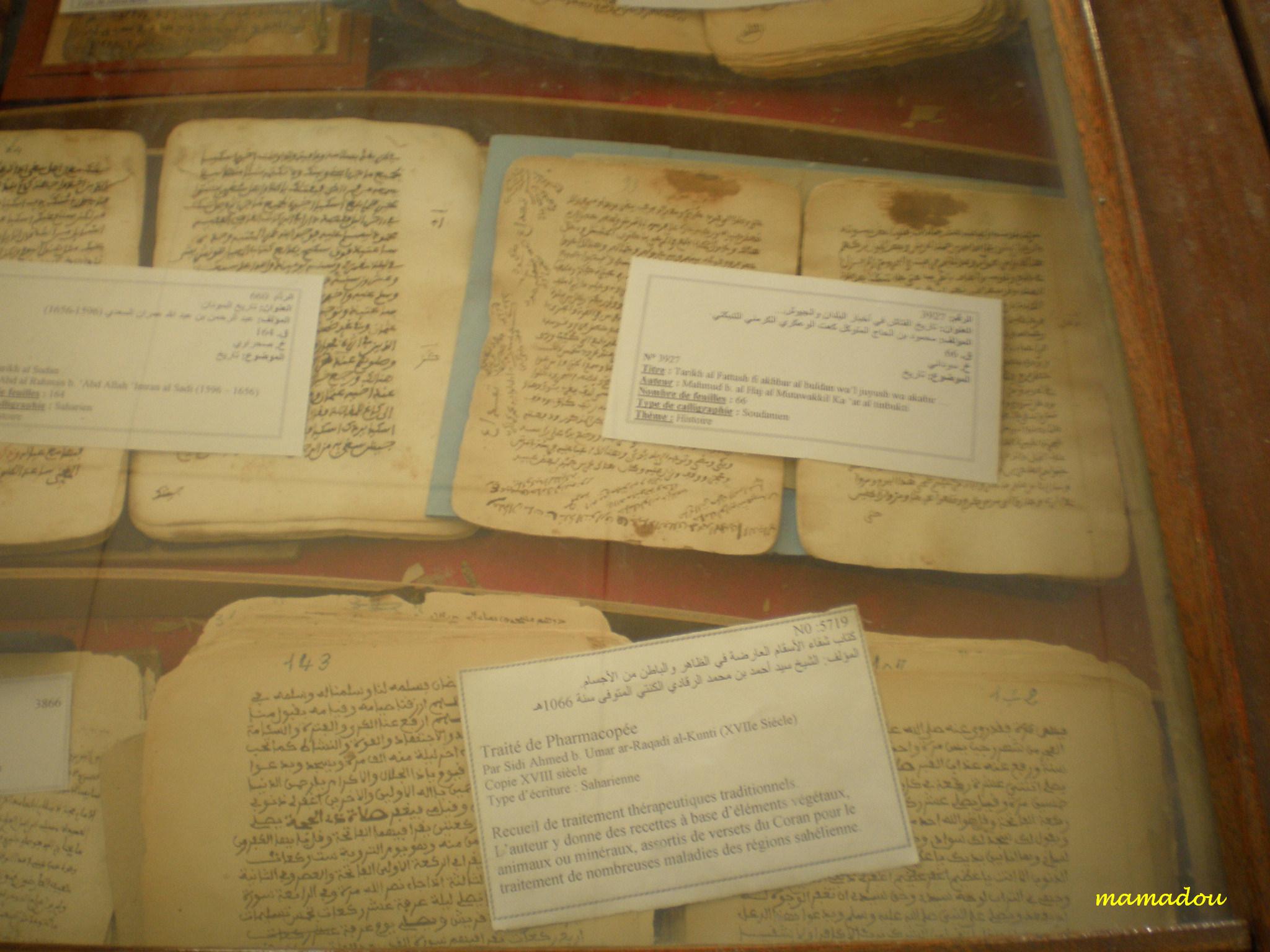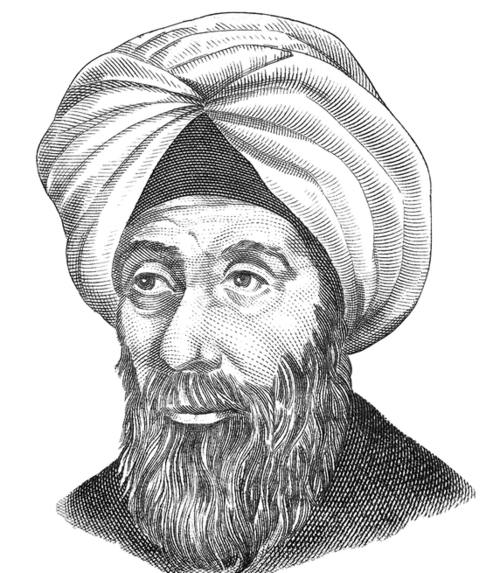Muslim/Islam
Related: About this forumIslamic Contributions to Science: The Scientific Method
In the normal course of education, students in the West experience a narrative that has all but wiped out the massive contributions of Islamic scholars into the knowledge that we all rely on today.
One example of this is understanding how rational thought was resurrected in Europe after the mid ages with the help of Islamic academia.
How aggregious this whitewashing has become is in the western charachterization of the great Islamic university and library at Timbucktu as a non-existent place.
At the height of the Golden Age of Islam Timbucktu was one of the greatest learning centers of the world;
http://en.wikipedia.org/wiki/Timbuktu

 ?size=44527
?size=44527
At the same time the West was in the throws of the anti-rational middle ages Islam was going through the greatest age of intellectual growth since Greece. As the Church was promoting the Spanish Inquisition and the destruction of libraries in Europe Islamic libraries were maintaining the threads from Aristotle.
It is quite possible that without the Islamic libraries that many of the early works from Greece would have been lost forever.
Here is an example of ancient texts of Timbuktu

http://everythingspossible.wordpress.com/2008/07/13/timbuktu-islam-and-knowledge/
The Institute of Higher Learning and Islamic Research of Ahmad Baba (IHERIAB) is founded by the government of Mali, with collaboration of Unesco. Ahmad Baba al-Massufi, Ahmed Baba Es Sudane, or Ahmed Baba, the black (1556–1627), was a medieval West African writer, political provocateur and scholar of Masjid Sankore. Through out his life, he wrote more than 40 books and is often noted as having been Timbuktu’s greatest scholar and mujaddid.
IHERIAB’s library holds some of these manuscripts in order to restore and digitize them. More than 18,000 manuscripts have been collected by IHERIAB, but an estimate said there are about 400,000-700,000 manuscripts in the region. There are many other private bibliotheques in Timbuktu where thousands of manuscripts are kept. Some manuscripts were taken and kept to Paris, London, Spain and other parts of Europe. Some manuscripts were buried underground, while others were hidden in the desert or in caves. Many are still hidden today.
It is possible that at the same time Europe was lighting its libraries on fire that the great library of Timbuktu had more than a million transcripts, which would mean that it was the largest library in human history prior to the printing press.
Unknown to Europe Islamic scholars were refining Aristotles methods of inquiry into a formal inductive scientific method.
http://en.wikipedia.org/wiki/History_of_scientific_method
The founder of the modern Scientific Method is
Ibn al-Haytham

Ibn al-Haytham (Alhazen), a pioneer of scientific method.
The first of these experimental scientific methods was developed in Iraq by the Muslim physicist and scientist, Ibn al-Haytham (Alhazen), who used experimentation and mathematics to obtain the results in his Book of Optics (1021).[16] In particular, he combined observations, experiments and rational arguments to support his intromission theory of vision, in which rays of light are emitted from objects rather than from the eyes. He used similar arguments to show that the ancient emission theory of vision supported by Ptolemy and Euclid (in which the eyes emit the rays of light used for seeing), and the ancient intromission theory supported by Aristotle (where objects emit physical particles to the eyes), were both wrong.[17] Ibn al-Haytham's scientific method resembled modern scientific method and consisted of the following procedures:[18]
1.Explicit statement of a problem, tied to observation and to proof by experiment
2.Testing and/or criticism of a hypothesis using experimentation
3.Interpretation of data and formulation of a conclusion using mathematics
4.The publication of the findings
Three hundered years later Robert Grosseteste would read a translations of Arabic translations of Aristotle and build on Islamic scholars development of the scientific method.
Bacon would build on that and 700 years after Ibn al-Haytham Sir Isaac Newton would use those methods to revolutionaize Western Science.
I think that it is very difficult to understand the clerical system in Iran and how Persians have been influenced by peer review as a method of leadership without understanding how they have been influenced by Ibn al-Haytham. There is no central leader in Iran but different factions that are trying to vie for influence by appealing to a peer review. It is in our interest to create seperation between the radicals and win over the moderate clerics and hasten the eventual Iran/American reapproachment.
As one that has family and friends that are Muslims I subscribe to this group so that I can learn more about Islamic contributions to history as well as to understand what progressive Muslims are thinking today.
Violet_Crumble
(35,961 posts)Islamic culture from that period is really interesting. I don't know much about it, but do know that they were really advanced in the field of medicine....
grantcart
(53,061 posts)1StrongBlackMan
(31,849 posts)But,
One example of this is understanding how rational thought was resurrected in Europe after the mid ages with the help of Islamic academia.
Isn't, even, THIS an example of the "whitewashing" that the article laments?
How does one "resurrect" something that the habitants of Europe never accepted during the two previous eras? IOWs, Europe (as a region of peoples) did not possess the "rational thought", provided (by Africans) to the Roman empire during the Golden Age. Rather it was practiced by the Romans; but, rejected by the conquered native European peoples.
And notice how, the article's use of terms ... it refers to "the West" (a geographic designation) and contrasts it with Islam (a religious/cultural designation) ... the more appropriate (read: non "white-washed"
freshwest
(53,661 posts)It was my choice to study this, an elective 2-year course. It's a great loss that it was not taught more.
When I was growing up, there wasn't this rabid Islamophobia being preached now. A number of Islamic charities operated in my state, but their focus was not the religion, but what they wanted to do for others freely. That's what all religions should do, stick to the goal, not labels.
And my family, as I explained in another thread on Baptists, saw no difference in the various religions and belief systems. For us, following the Golden Rule was all that mattered.
Thanks for the thread.
